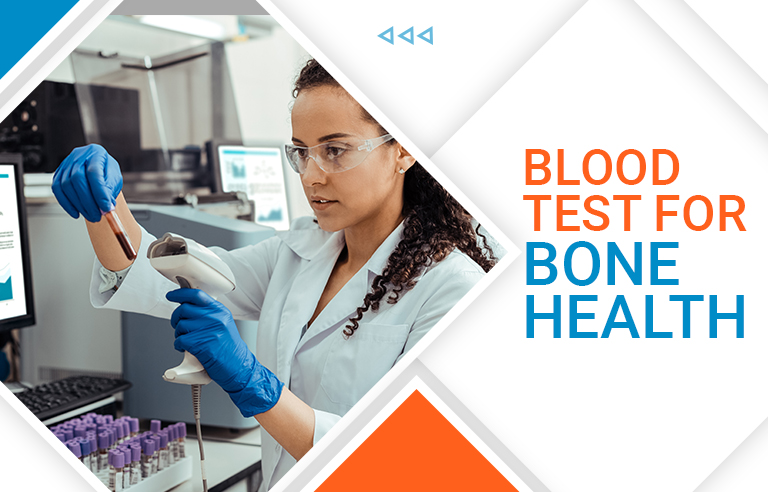
A bone profile test measures the minerals, enzymes and minerals in the bone and assesses how well the body’s metabolic processes function. This test is important to examine your overall bone health and ensure they develop and regenerate as they should.
Growing older can bring medical conditions that weaken the bones’ initial strength. These medical conditions include:
- Osteoporosis
Osteoporosis is a common bone disease. It weakens and thins the bones, increasing the fracture risk. Bone tissue degeneration, disturbance of bone microarchitecture and low bone mass also affect people with osteoporosis.
Weight loss due to ageing is common but can result from binge drinking, hormone changes or eating disorders.
- Bone Paget’s disease
Paget’s disease is the most common bone illness. This disease can affect bone rebuilding or turnover. The bone tissues can restore themselves, but this disease causes faster bone tissue replacement, leading to bone pain and brittle bone tissue.
- Bone cancer
Bone cancer can cause abnormal bone tissue formation, making bones brittle, thick and weak. This increases the risk of the bones breaking. Bone cancer is fast becoming the most common type of cancer and is characterised by inflammation of the bones, swelling and nodules.
- Liver and thyroid problems
A bone profile test can help diagnose parathyroid and thyroid disorders. The thyroid and parathyroid are important in maintaining healthy calcium and phosphorus levels. It can also indicate problems with the liver, as the liver produces enzymes and proteins. Enzymes, proteins and thyroid hormones significantly contribute to skeletal development.

Blood tests in a bone profile
A bone profile blood test can identify several diseases directly and indirectly linked to the bone. The main minerals a bone profile test measures are:
- Uric acid
- Total protein
- Albumin
- Phosphorus
- Alkaline phosphatase
- Calcium
What should the test show?
- Phosphorus
Phosphorus is commonly found in nature as phosphate is a normal cell component. The bone contains over 85% of the phosphorus in an adult’s body and makes up more than 50% of the bone, while the remaining 15% of phosphorus is found in the body’s soft tissues.
Most cells mainly consist of phosphorus. It helps regulate acid-base balance, is necessary for important biological processes, and aids energy generation. Dietary phosphorus is vital to restore daily phosphorus losses to maintain growth in pregnancy, lactation and puberty.
Foods rich in protein, such as chicken, eggs, meat, legumes, fish and dairy products, are good phosphorus sources. Other healthy sources of phosphorus include hard potatoes, carbonated beverages, dried fruits, garlic cloves and whole grains.
Phosphorus levels increase in people with osteolytic malignancy, pseudohypoparathyroidism or regenerating bone fracture. However, lower phosphorus levels occur in osteomalacia and rickets.
Fresh plasma or serum is necessary to measure the amount of phosphorus in the blood. Its normal range is 0.8 – 1.5mmol/L.
- Calcium
Calcium forms a hard crystal when it binds with other minerals to give the bone its structure and strength. The bones hold over 99% of the calcium in the body, while a small amount remains in the blood for healthy functioning of the nerves, blood, heart and muscles.
The main source of calcium is dairy products. Calcium supports bone health management and skeletal growth. The calcium levels in the blood are higher in conditions like Paget’s disease and hyperparathyroidism, while the levels are lower in pseudohypoparathyroidism and hypoparathyroidism.
Fresh plasma and serum help measure calcium in the blood, and the normal range of calcium is 2.20 – 2.60mg/dL.
- Albumin
Low albumin levels in the blood are linked to low bone mineral density or osteoporosis. However, the relationship between fractures and these conditions is still unclear. An analysis found that a linear dose response exists between an increased risk of long-term fractures and low serum albumin levels in middle-aged Caucasian men. This means avoiding low levels of serum albumin may result in fewer fractures.
Why is albumin important?
Albumin in the blood helps prevent fluid from entering other tissues from the blood vessels. It also aids the transportation of hormones, enzymes and vitamins throughout the body. Low albumin levels may allow fluid to leak from circulation and accumulate in the tummy, lungs and other body parts.
You can increase your albumin levels by eating protein-rich foods such as eggs, nuts and dairy products. If you drink alcohol, consider stopping or ask your doctor for a healthy limit. Alcohol consumption can reduce blood protein levels and worsen your symptoms. Checking the albumin levels can help diagnose osteoporosis.
Fresh plasma or serum can determine the albumin level in the blood. The normal albumin range in the body is 35 – 50g/L.
- Alkaline phosphatase
ALP is present throughout the body. This enzyme is vital in the breakdown of proteins and is commonly found in the intestines, liver, kidney and bones. ALP test checks its level in the blood. The liver and bone marrow transport most of this enzyme in the body.
Fresh plasma or serum helps determine the alkaline phosphatase level in the blood. The normal range for adults is 30 – 130u/L.
- Total proteins
This test checks the level of blood proteins (globulin and albumin). Calculating the albumin to globulin level ratio can provide important information in monitoring bone marrow conditions.
Protein can improve bone health by improving insulin-like growth factor 1 production, increasing calcium absorption, reducing parathyroid hormone and increasing muscle mass. However, it is also vital to consider the effects of other factors contributing to this association, such as the response at the exposure time and dietary protein dose.
Fresh plasma or serum is necessary for calculating the total protein in the blood.
- Uric acid
This test determines the uric acid levels in the blood. The body produces uric acid, a waste product passed out through the urine, from eating foods like red meat. Blood uric acid level is a vital indicator of bone health. Uric acid helps prevent bone fractures and is linked to decreased bone mineral density.
Fresh plasma or serum is necessary in measuring uric acid in the blood. Its normal range is 3.5 – 7.2mg/dL.
Reference ranges
The table below shows the reference ranges for blood tests in a bone profile.
| Test | Reference range |
|---|---|
| Calcium | 2.2 – 2.6mmol/L |
| Albumin | 35 – 50g/L |
| Phosphorous | 0.8 – 1.5mmol/L |
| Total protein | 60 – 80g/L |
| Alkaline phosphatase | 30 – 130U/L |
| Uric acid | 3.5 – 7.2mg/dl |
The International Federation of Clinical Chemistry (IFCC) and the International Osteoporosis Foundation (IOF) recommend the following tests for assessing bone turnover.
- C-telopeptide (C-terminal telopeptide of type 1 collagen (CTx) – this compound is a bone turnover indicator
- P1NP (Procollagen type 1 N-terminal propeptide) – a bone formation indicator
What should I know before my bone profile blood test?
Like any blood test, the nurse, doctor or healthcare professional will draw your blood sample. They will put the blood in a vial and send it to the lab for analysis. It may take about 3 – 4 to get your result.
However, unlike many blood tests, you do not need to fast before a bone profile bold test. If you take calcium supplements without consulting a doctor, avoid taking the supplement before your test. Ensure you inform your doctor if you are taking supplements, including calcium, vitamin D, or other minerals or vitamins, because they can affect your test results.
Visit Private GP London today if you need a bone profile test. You can also contact us at 020 7043 4317 or [email protected] to book an appointment for your bone profile test or to get more information about this test.
Frequently asked questions
Like other blood tests, the doctor or another healthcare professional will take a small sample of your blood with a small needle and syringe and then send the sample to the lab for testing. This test doesn’t require you to visit the clinic fasting.
The blood is important for different body processes, such as transporting nutrients, oxygen, vitamins and minerals to all cells in the body. It also flows through the bone, so you can get tests to determine the health of your skeleton. The skeleton is the structure that holds you up, so being aware of its health is important, and a bone profile test can help you know about your skeleton’s health.
Only the bone profile test can detect who is at risk of bone cancer or disease.
A bone profile blood test can check for diseases and conditions like bone cancer, Paget’s disease of bone, osteoporosis, liver and thyroid problems.
You only need a bone profile blood test if your doctor recommends it to check for suspected diseases or conditions or during a comprehensive general check-up.



-min.jpg)

